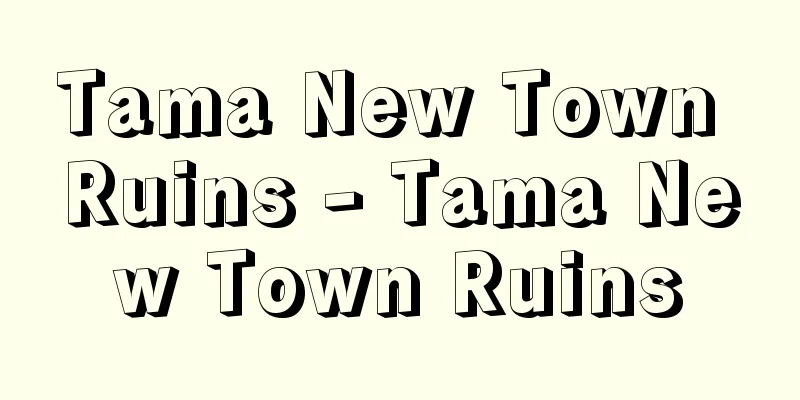High - Taka

(The stem of the adjective "takai" (high)) [1] [noun] ① The total amount of something. (a) The yield of agricultural products, especially fields. Also, the amount of tribute or land. ※Chiho Ichiyo-ki (around 1695) - Taka and rin are known, and the governor knows the amount of rice and gold. "If there are five Takatori, the field officials know that if you multiply Taka by four, it is a good deal." ※Jinjo Shogaku Dokuhon (1887) (Ministry of Education) 5 "Dried shiitake mushrooms have recently been exported overseas, and the value is said to be over 30 million jin." (b) The amount of money, etc. ※Gyokujin-sho (1563) 16 "Taking quality to make Taka easy." ※Mon (1910) (Natsume Soseki) 4 "He spoke of the amount of capital he had brought out of Morinosuke." (c) The number of troops. ※Ashikagahon Analects (16th century), Yongya, Chapter 6: "The Han Dynasty had 400,000 cavalry, but it is recorded that there were only a million." ② Used to express the high level of abstract matters or their progression, or the end result. →High, high, high is known, high. (a) Expressing the limit or boundary. The end of something. The bottom line. The end. The limit. The end of high. ※Joruri, Sonezaki Shinju (1703), "The mountain where death is high" ※Kabuki, Shinju Kimonkaku (1710), Part 1, "Hisamatsu-sama, I fell in love with you so high" (b) Used to express the limit or boundary of something, from the point of pushing it to the limit. The very best. The utmost one can do. Amount or number. ※Joruri, Otokosaku Gogankin (1742), Shinmachi Torimono " Taka is a joke, not a good one." ※Kabuki, Yagura Taiko Naruoto Yoshiwara (1866), 6th Act " Taka is the one who often fights, takes on the top of things, and extorts money." ③ The main points of things or the general circumstances. In summary. → Takaga/Taka. ※Joruri, Eka Karuta (around 1714), 5th "If you accept Taka, then the best time will come." ※Joruri, Kyo Habutae Musume Kishitsu (1764), 2nd "If you don't know the reason , let me tell you, Taka is like this ." ④ An abbreviation of "Takadoma (high earthen floor)." [Essays, Morisada Manko (1837-53)] [2] [Morpheme] ① Combined with a noun or verb, it expresses the meaning of high. (a) It means that something is high in shape or position. In ancient Japanese, the meaning of indicating actual height became weaker, and it was sometimes used as a word of praise. "Takajo (high castle) ", "tall peak", "tall hall", "tall price", "high shine", "highly sit", "high know", etc. (b) It means that the sound is loud. "Loud laughter", "loud talk", "loud ringing", "high voice", "high pitch", etc. ② ⇒ daka (high)Takama-ru [high]Taka/Meru [High]Koukau [High]But [high]Takamari [High]Takamu [High]Taka/Bu [high]Koukau [High]Takashi [High]Source: The Selected Edition of the Japanese Language Dictionary About the Selected Edition of the Japanese Language Dictionary Information |
(形容詞「たかい(高)」の語幹相当部分)[1] 〘名〙① 物の数や量の総額をいう。(イ) 農作物、特に田畑の収穫量。また、貢租量や知行の額をいう。※地方一様記(1695頃)高と厘とを知物成米金を知事「田方は高取に五つあらば、高に四を掛れば則物成と知」※尋常小学読本(1887)〈文部省〉五「干椎茸は、近来外国へも出し、其高三千万斤余に及べりと云ふ」(ロ) 金銭などの量をいう。※玉塵抄(1563)一六「質を高をやすうにしてとって」※門(1910)〈夏目漱石〉四「守之助から持ち出した資本の高迄話した」(ハ) 軍勢の数。※足利本論語抄(16C)雍也第六「漢の高は四十万騎あったれども百万騎と記ぞ」② 抽象的な事柄やその推移について、その程度の高いこと、また、ゆきつくところを表わす。→高が・高で・高が知れる・高を括る。(イ) 極限・限界を表わす。物事のゆきつくところ。とどのつまり。最後。限度。高のしまい。※浄瑠璃・曾根崎心中(1703)「死ぬるをたかの死出の山」※歌舞伎・心中鬼門角(1710)上「久松様、惚れたが高でござんすほどに」(ロ) 限度までいってみたところでの意から、物事の限度、限界を示す。せいぜいのところ。精一杯のところ。多寡。※浄瑠璃・男作五雁金(1742)新町捕物「高(タカ)はじゃれじゃ、がいがいいふな」※歌舞伎・櫓太鼓鳴音吉原(1866)六幕「多く喧嘩やおっかぶせ、押借りゆすりが高(タカ)だから」③ 物事の要点やおおよその事情。大略。→高が・高で。※浄瑠璃・娥歌かるた(1714頃)五「高をさへのみこめば其上は時のさいかく」※浄瑠璃・京羽二重娘気質(1764)二「理由(わけ)を知らざ云て聞さう、高は恁(か)うじゃ」④ 「たかどま(高土間)」の略。〔随筆・守貞漫稿(1837‐53)〕[2] 〘語素〙① 名詞や動詞と熟合して、高い意を表わす。(イ) 形や位置が高いことをいう。古代語では実際の高さを示す意が薄らいで、ほめことばとして用いられる場合もある。「高城(き)」「高嶺」「高殿」「高値」「高照らす」「高敷く」「高知る」など。(ロ) 音声が大きいことをいう。「高笑い」「高話」「高鳴る」「声高」「音高」など。② ⇒だか(高)
たかま・る【高】たか・める【高】こう カウ【高】だか【高】たかまり【高】たか・む【高】たか・ぶ【高】こう カウ【高】たか・し【高】出典 精選版 日本国語大辞典精選版 日本国語大辞典について 情報 |
Recommend
Wasa-so
This manor was located on the south bank of the Ki...
Liu Shaoqi
Chinese politician. Born in Hunan Province. After...
Japanese bush warbler - Japanese bush warbler
A deciduous shrub of the Caprifoliaceae family (A...
Epagomene - Epagomene
…A solar calendar originating from ancient Egypt....
Athanagild
…The principle of elective monarchy had the unfor...
Army War College - Rikugundai Gakko
The highest educational and research institute in...
Poster - poster (English spelling)
A piece of paper posted for the purpose of public...
Keido Ohara
…Businessman and social worker. Born as the secon...
Erie (English spelling)
A city on the eastern shore of Lake Erie in northw...
Oirote [Autonomous Region] - Oirote
...The northern group was formerly called the For...
Yahweh (English spelling)
The name of the God of Israel revealed to the prop...
Iyurha, Y. - So-called
…Next came Koskenniemi, whose works were of a lig...
Schamoni, U. (English spelling) SchamoniU
This historic "Oberhausen Manifesto" be...
Houdry, EJ
...The process of cracking heavy petroleum fracti...
Fonda, J.
...American film actor. He was also active on the...









